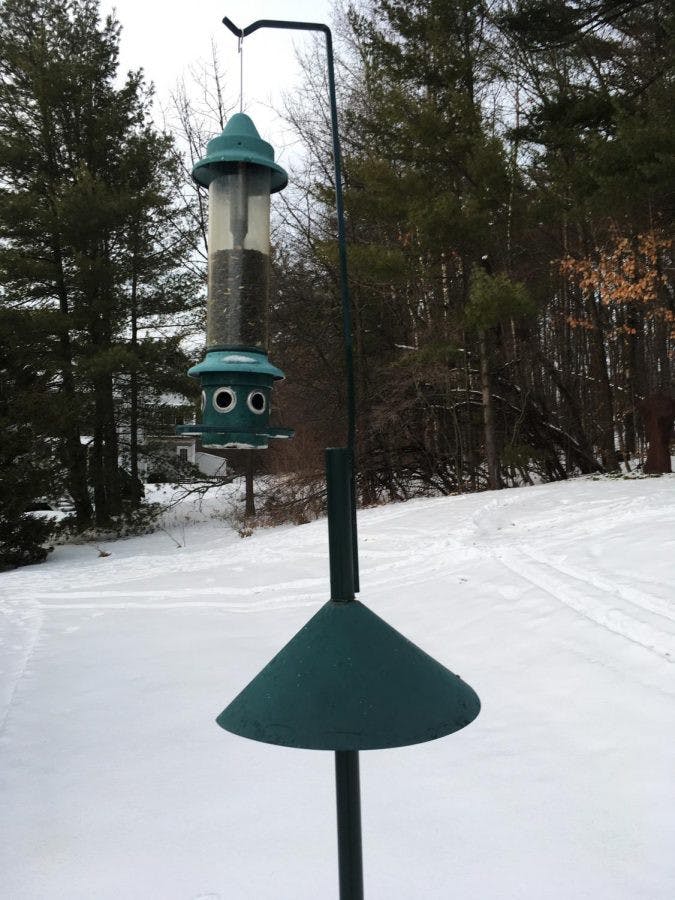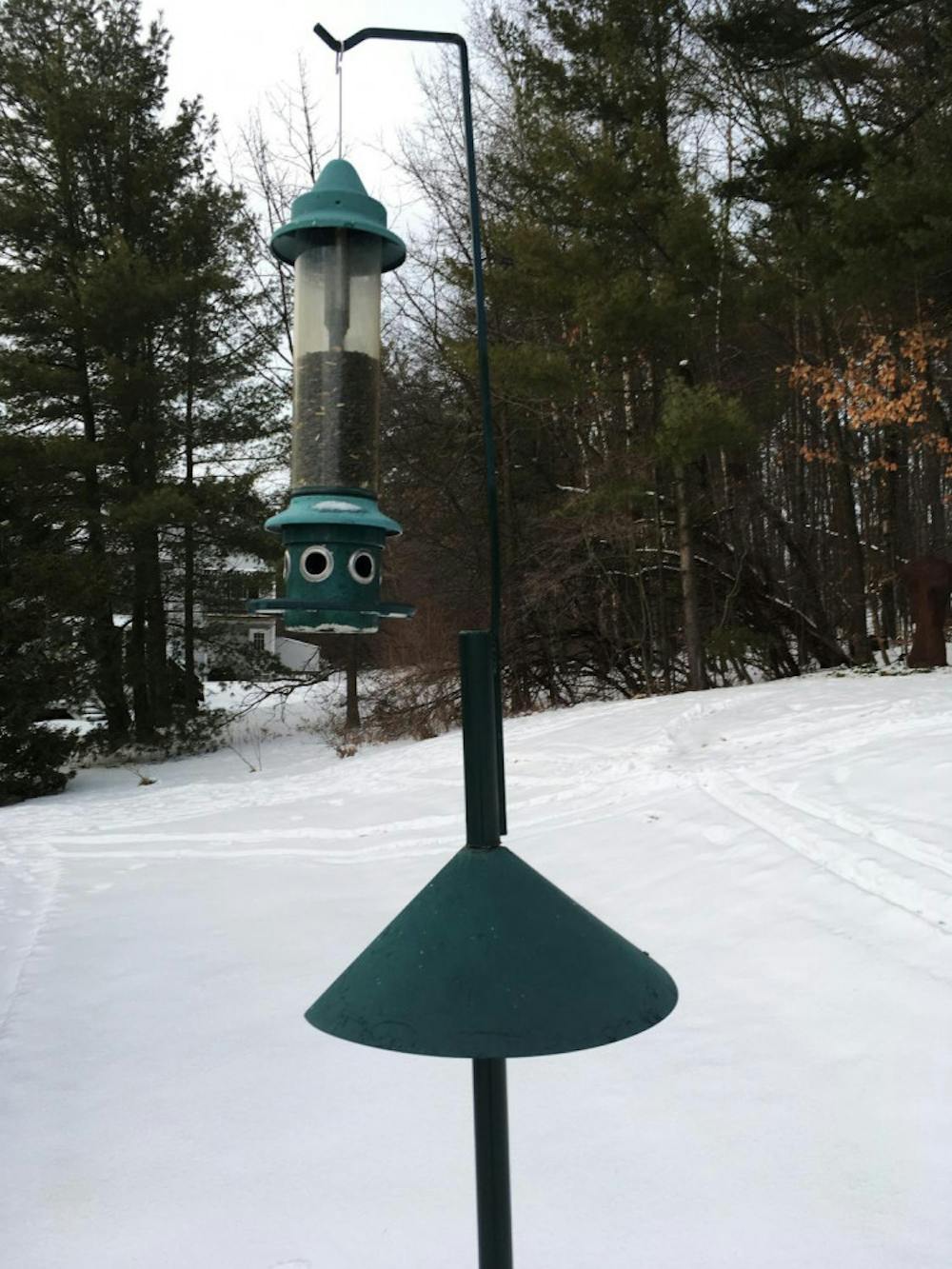
COURTESY PHOTO
Dottie Nelson's deserted bird feeder awaits hungry beaks.
Dottie Nelson's deserted bird feeder awaits hungry beaks.
“This winter there just haven’t been birds at our feeder,” Nelson said. “I was curious whether other people in Middlebury had noticed the same thing, or if we were doing something wrong with our feeder.”
The post, which received numerous responses from members in and around the Middlebury community, sparked speculation among bird enthusiasts. While some asked if the use of old birdseed could be the issue, others wondered if the absence was the product of a declining bird population.
“In past years, we would have to refill our feeders at least once a week, sometimes twice a week,” Nelson recalled. “We would see all kinds of birds; lots of different species. In previous years we saw tons of birds, but this year we put the feeders out around Thanksgiving and we haven’t refilled it at all.”
“The statistics collected by the Christmas Bird Count reported 15,659 birds this year, which is down 300 from last year,” Nelson added. The 300 missing birds do not seem to be cause for astonishment, however, as numbers collected in December 2018 show the population change at less than two percent.
The presence of birds in Middlebury does not seem to have a positive effect on feeder visitations, however: an informal poll conducted by Nelson shows that, of 35 feeders in Middlebury and surrounding communities, 25 reported having few to no visitations from birds this winter.
“It is quite possible that some birds moved out of the Middlebury area in response to the lack of natural foods,” said Steve Faccio, a conservation biologist at the Vermont Center for Ecostudies. “With the lack of seeds and nuts, birds may have moved further south seeking more abundant food resources.”
This answer was consistent with the response Nelson received from Jim Andrews, the coordinator of the Middlebury Christmas Bird Count, an event under the umbrella of the Audubon Christmas Bird Count.
Nelson speculated that the presence of bears in Middlebury in the spring may have also had something to do with the lack of birds this winter.
“Bears were a big deal in Middlebury last spring,” she said. “A mother bear and her three cubs moved into town and began raiding garbage cans. Eventually Fish and Wildlife came up with the idea that if everybody took down their birdfeeders, the bears would eventually move out on their own and Fish and Wildlife wouldn’t have to shoot or relocate them.”
While the bears eventually moved on, many continued to keep their birdfeeders indoors until late fall to ensure the prevention of the bears’ return. Nelson’s hunch that the withdrawal of the feeders may have contributed to the absence of birds this winter was supported by Alexis Will, Post-Doctoral Research Fellow at the Institute of Arctic Biology at the University of Alaska, Fairbanks.
“All summer long certain birds — especially chickadees — collect seeds and stash them,” Will said. “They have a mental map of where all their caches are, and included in those mental maps are where those bird feeders are. If during the fall, when they are setting up their winter caches, those feeders aren’t present, those feeders are not cataloged as something to visit during the winter, when the birds are not doing a lot of exploration.”
Though Nelson put her feeder back up in November, the opportunity for birds such as chickadees to populate the feeder may not have come in time for the birds to store long-term “mental maps” of the food source.
This mental mapping may not explain the absence of all birds, but Faccio said that their scarcity is not something to worry about, for now.
“It is possible that the birds will return in future winters,” he said. “Many of our winter birds are fairly nomadic, moving to areas where they find food. So they may show up in our area in fall and stick around for a while, but then move on to other areas if food is scarce.”

ARIADNE WILL
Ariadne Will ’22 is a local editor for the Campus.
She has previously served as a staff writer, where she covered topics ranging from Middlebury’s Town Meeting to the College’s dance performances.
Will also works for her hometown newspaper, the Daily Sitka Sentinel, where she covers tourism and the Sitka Planning Commission.
She is studying English and American literature with a minor in gender, sexuality and feminist studies.
Comments




